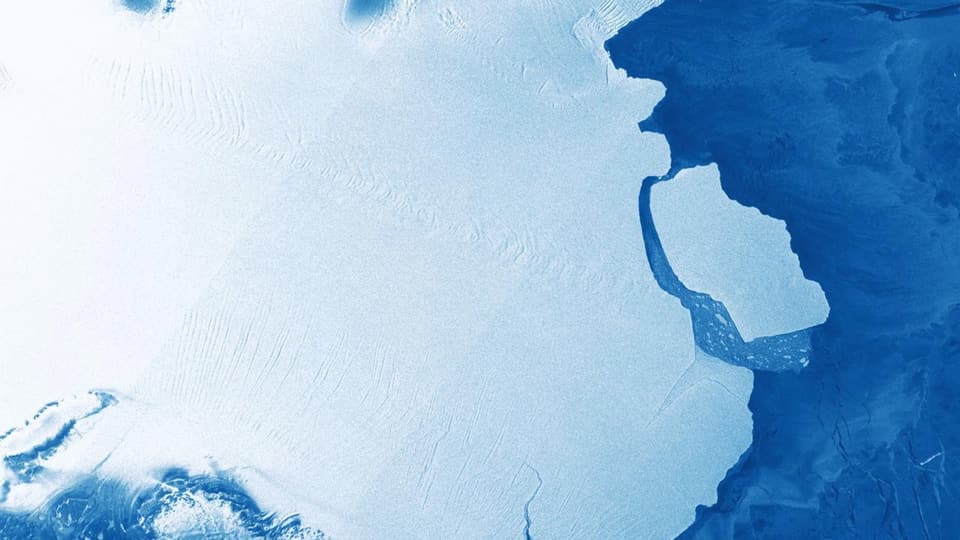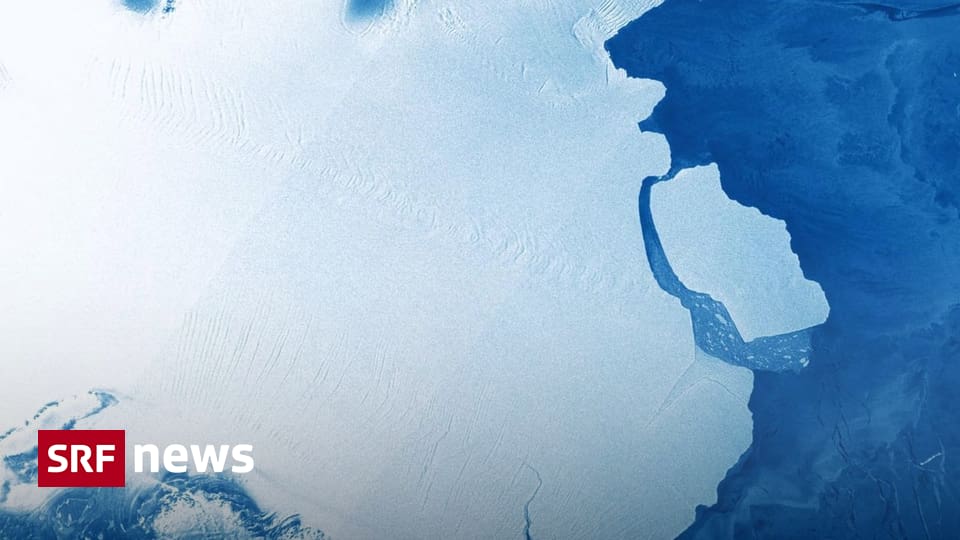Floating ice still holds the glaciers. According to a new study, thawing can at best be delayed.
Ice shelves in front of the glaciers in West Antarctica will melt even if the Paris climate target is met. This is according to an alarming new study published in the scientific journal Nature Climate Change.
“We appear to have lost control of the melting of the West Antarctic ice sheet,” says Caitlin Naughton, lead author of the study. She and her research colleagues have examined how sea temperatures in West Antarctica may be warming in more detail than ever before — depending on how much global warming increases.
According to the study, rapid ocean warming cannot be stopped
The result of their model is striking: regardless of whether the increase in global temperatures is 2.6 degrees, 2 degrees, or just 1.5 degrees, rapid warming of the seas is likely across all variables.
This means that the melting of the ice shelf into the sea, which is still hundreds of meters thick today, is inevitable. This has an impact on huge glaciers such as the Thwaites Glacier. Until now, the ice shelf has prevented these glaciers from sliding into the sea.
There is also a risk of glaciers melting from below. Because the land on which the glaciers are located slopes towards the interior of the continent.
This is why huge glaciers can undercut and melt seawater from below. This process takes centuries, but the melting of the West Antarctic ice sheet alone would cause sea levels to rise by four to five metres.
Critical comments on the study
Glaciologists and climatologists who were not involved in this study are considered strong. However, the far-reaching conclusions do not go unchallenged: it is certain that the melting of West Antarctica can no longer be prevented. However, the interaction between sea temperature and the process of melting and glacier sliding is so complex that the interactions cannot be conclusively elucidated even by this study, according to the assessment.

legend:
A satellite image shows the D83 iceberg, which broke off from Antarctica’s third largest ice shelf, the Ameri, on September 25, 2019. It had an area of 1,582 square kilometres, and was therefore slightly larger than the canton of Lucerne.
Keystone/EPA/EU/Copernicus
However, all researchers agree on one point: every tenth of a degree the global temperature cools is valuable. Whether the collapse of the entire West Antarctica might be preventable after all. Or there may be more time to clear coastal areas in an organized manner, or – if possible – to protect them with huge dams.

“Typical entrepreneur. Lifelong beer expert. Hipster-friendly internet buff. Analyst. Social media enthusiast.”







More Stories
A boy finds a rare Lego octopus from a container that fell into the sea in 1997
SRF News Contest of the Week – News
Temperature and humidity: Kachelman explains the phenomenon